
Fall 2020
Message from the Director

Welcome to yet another Fall term! This new academic year and Fall term promises to be both sombre and challenging given the surge of COVID-19 cases in the U.S. & around the world.
I want to take a moment to welcome the newly admitted students. While on the one hand, this is a very challenging time to be a student, given restrictions on in-person meetings etc., on the other, this is also a great time to be a student – you are witnessing how government agencies, civil society organizations and groups of people, including our university, are responding in creative ways to the challenges before us. This pandemic is a once in a lifetime event and will surely offer us many lessons, while it lasts.
With an election looming over us and a policy landscape that is confusing at best, this could be an important moment to both study and teach about public policy & public administration. States and counties seem to have taken on the healthcare and economic challenges and the lessons we learn from local government may be far more enduring than the ones we learn from national level policy making.
As of this writing, the U.S. has more than 5 million confirmed cases of COVID-19 – and experts suggest possibly many times more that are undetected – which means that we are nowhere near getting out of this pandemic anytime soon.
While much has been written about the pandemic and much more will be written about it, the fact remains that the study and practice of public policy and public administration has become more urgent than ever as we navigate this crisis – both individually and collectively.
If there are any heroes that we have come across, then they are the ‘street level bureaucrats,’ – teachers, nurses and millions of other public servants, who risk their lives to make sure that the rest of us stay healthy.
The current scenario reminds me of the famous scholarly debate initiated by public administration scholar Kenneth Meier, that we need ‘more bureaucracy and less democracy,’ meaning that bureaucrats are often more equipped to bring about ‘real’ change and are able to make sound decisions based on evidence, rather than politicians who are often swayed by electoral calculations and other motives that may not have a solid basis in fact. We are seeing this play out in the public sphere, on a daily basis.
With no certainty of how the pandemic will play out and with the world looking like a scary place, all we can do is carry on our tasks, no matter how insignificant or significant, to achieve common good. For students, scholars and practitioners of public administration, public policy and those who want to pursue the ‘common good,’ a good daily reminder is the oath of the Athenian city-state, which is embodied in my alma-mater, the Maxwell School of Syracuse University.
It reads “We will ever strive for the sacred things of the city. Both alone and with many, we will unceasingly seek to quicken the sense of public duty. We will revere and obey the city’s laws, we will transmit this city not only less but greater and more beautiful than it was transmitted to us.”
Sabith Khan
Master of Public Policy and Administration Program Director
MPPA Department Celebrates Our 2020 Graduates
2020 is a year we will never forget. Everyone scheduled to graduate in 2020 shares the distinction of being part of this unforgettable group of students who completed their studies in the middle of the global pandemic. While we look forward to celebrating in person in the future, whenever that time will be, we wanted to take a moment to honor our class of 2020. Congratulations on your remarkable achievement. We look forward to seeing all the wonderful things you will accomplish and all the ways in which you will put your degree to work! Best wishes for all of your future experiences! #MPPAForever
Douaa Addawu
Majd Al Malki
Sultan Al Zaidan
Jesus Alaniz
Abdulla Alkaabi
Mohammed Alshenafy
Kelsey Alter
Asatur Asatryan
Lauren Bueling
Crawford Coates
Audrey Darrett
Josiah Gonzales
Kimberly Dellacort
Lindsay Granger
Ashley Humes
Clara Magana
Haili Matsukawa
Christino Olivo
Miguel Rodriguez
Claudia Romero
Rachel Smith
Alexis Villegas
Teaching During the Pandemic
Loredana, Carson, Ed.D
The virtual classroom has become the new normal. Prior to March 2020, I had not ever taught a class in an on-line environment. However, once the decision was made that our Spring term was going to continue virtually, I learned the way every other teacher in the United States did, by jumping in and doing it. While teachers were scrambling to provide good content, our students had to deal with problematic technology and find a quiet place to go to school from home. I can’t say it was a seamless jump from the in-person classroom to the virtual world, but we made it through the spring and at least in summer had some idea what we were doing. I taught over the summer and will teach online again in the fall, using what I have learned to enhance and improve my virtual classes.
The mantra that I used over and over to myself and others was “Consider the alternative: no school at all.” Without the benefit of the internet and platforms such as Zoom, which allow screen sharing and breakout rooms and sufficient bandwidth, all academic progress would have been halted or classes would have been much less robust and perhaps even more self-directed and less interactive. Students were able to receive credit for courses and no one has had to pause or put their academic plans on hold while the world sorted out how to cope with a pandemic.
Along the way, several good points in favor of on-line learning have emerged. To my surprise, as much as I really enjoy in-person teaching and the energy of an active, engaged classroom, I have found it possible to recreate the relationships I had with my live students with my virtual class. It takes some work and everyone needs to be onboard, but once the strangeness of speaking to each other from our homes wears off, we can have good discussions and I can offer the students the chance to interact through the breakout room feature so they feel more connected to those small boxes on the computer screen. If students are willing to interact with me and with each other, they have even more options to participate through the chat feature and the easy polling function allows for periodic check-ins for comprehension and opinion. For students who sometimes feel dominated by enthusiastic extroverted voices, these alternative means of participation allow for more participation.
Higher education has taken the whole summer to decide how to cope with fall, and although some campuses in other states are opting for hybrid instruction, none that I know of are going for 100% in-person. Graduate programs such as ours are in a different space as we do not have residential students and the majority of our students are mature enough to understand the reason for the rules and regulations.
My students have shared with me the pros and cons of attending class virtually and they feel the same way as I do, for the most part. We all miss the in-class energy and time to get to know each other but we all benefit from less commuting, less time spent away from home and not having to be on our feet and out of the house from 8:00am to 10:00pm if we have full-time day jobs. For those students whose schedules are less taxing, they still enjoy the comfort of not having to arrange childcare for older children or not having to be on campus so late in the evening.
This new experience is what we make it. If we take it as an opportunity to become proficient in this new way of relating, we will be ahead of the pack as the world becomes increasingly dependent on virtual communication. Businesses are finding the same benefits, and additional cost savings, and are unlikely to abandon virtual meetings even after the pandemic has been contained. There are additionally environmental benefits that may improve life in our communities as we have less traffic and less pollution.
While it is not easy to embrace change and new ways of being together, it is necessary in order to keep on track with our academic goals and make progress towards planned degrees and future opportunities. Just like an in-person experience, you will get out of the virtual classroom what you put into it. If you go to class and don’t engage with your professor or other students, you will not get as much out of the experience as if you go in with the attitude that this can have value all around. If you attend class with the intent to meet and engage, you may find that a decade later you still are in touch with classmates (Hello Kim Rodrigues, Laura Romano, Yvette Redmon, Chris Collier, Gary Cushing, Ken Black, Carl Petersen, Raul Zapata, Marjorie Diehl, Tina Strange and others who I went through the MPPA program with 2008-2011).
I urge you to enjoy the experience and get good at virtual communication and participation. Although it came upon us in an unwelcome way, it may remain with us in such a way that we will not be able to imagine life without it. I’ll see you (virtually) in the fall of 2020 and look forward to hearing your experiences with virtual learning. Take the time to learn a few things about camera angles and lighting (light should be in front of you, not behind you; camera should be at eye level) and stay safe!
Reflections from an ASPA Founders Fellow
Josiah Gonzales, MPPA
I was accepted as an ASPA Founders’ Fellow for 2020 and was scheduled to present my topic at the Annual Conference, which was to be held right in our backyard…Anaheim, California. Obviously, things changed for this and everything else once SARS-Cov-2/COVID-19 emerged. The conference was canceled and everything was moved online. I’d like to say that I wasn’t affected by this, but that would be a gross understatement. There are always good and bad that transpire in and out of all change. For me, the change weighed heavier on the negative.
I did attend the conference and introductions online with ASPA Mentors and other Fellows. While there was definitely no shortage of passion, knowledge and experience on the part of both Fellows and Mentors. There was a gap that I was unable to hurdle once the conference and everything else that could be shifted online, went virtual. I made no eye contact. Shook no hands. Read little to no body language outside of facial expressions when meeting the other fellows and my mentor. This can be difficult even when there is not twenty faces on a laptop screen shrunk into a small square.
Although, what was easier for me to do was discuss the nature of my topic (Closing the Disparity Gap) with my Mentor, Maria Aristigueta, the Director and Charles P. Messick Professor of Public Administration at University of Delaware. Initially, I thought that my topic or policy proposal would be assessed and scrutinized as if I was submitting a Thesis paper. However, this was not the case. Maria did more listening, than I ever anticipated. Once she read my policy proposal and expressed her support of such an idea, I expected her to share some inside secrets about public administration that only a person with her experience would have. Secrets and knowledge of how feasible and how best to get it done. But, that was not the case. She just listened and asked more questions.
It was at that point that I realized, I had learned all (well not literally, but principally) that I needed to know in order to submit proposals, implement and administrate policies that reflected a need (politically or legally) that I perceived as important in an individual and society…closing the disparity gap.
Poverty and inequality, are arguably the greatest societal challenge(s) facing advanced societies such as the US. Indicators of such large-scale societal burdens are evident in the reduction of median wages, increases in families without health insurance, rising homelessness, and a lack of affordable housing. What is perhaps the most appalling discrepancy of inequality is not only of financial-economic concern, but those of principle. Personal tax evasion and corporate tax avoidance through offshore tax havens have contributed to a significant reduction of effective taxes. Worldwide, eight-percent of the world’s personal-fiscal-wealth is held in offshore accounts, costing governments over $200 billion every year, despite ambitious policy initiatives.
Now, how do individuals like me, who have defaulted on a mortgage during the last recession; went back to school during the recession; was a part of the transient-homeless-student population while acquiring a bachelor’s degree and simultaneously racking up student debt make sense of the future? Especially, when understanding that the homeless population by and large consists of the working poor? And I can’t top it off there, because I also live in the state of California, where I need to earn 3.6 times the state minimum wage to afford the median California asking rent of $2,225. Yet, corporate tax cuts have blocked 15,000 affordable homes in 2020 alone.
My policy proposal (if it actually was made into policy) would do the reverse and utilize corporate wealth to build what people want most according to Former Chair of The Gallup, Jim Clifton, which is create good jobs on a local level. This experiment should, in my mind, be conducted in states like California…where many of the largest and most profitable corporations are based. Ironically, California cities such as Los Angeles have the highest poverty rates, and, the state has the highest poverty rates in the nation depending on how poverty is assessed.
Although, I wonder…will another policy that the masses don’t know about and perhaps can’t care to know about, while they struggle to live, have any effect when considering the average citizen has no influence on policy in contrast to economic elites? Can a litany of laws and for lack of a better term “policizing” everything create more equality and reduce poverty? If so, why have things gotten worse rather than better? That’s a story that can only be told with a broader scope. At some point, there is only so much that can be done from a policy/legal standpoint. The key to changing the world, which is what MPPA students and practitioners hope for in some way or another, is to understand it and adapt accordingly. That doesn’t necessarily mean doing the same procedure, using the same tools or remaining within a particular field. For me, the changes that are important to me do not lie in the policy arena alone, but beyond as well.
MPPA Alumna Releases Memoir

The year 2020 marks three decades since 25-year-old Maria VanderKolk was elected to the Ventura County, California Board of Supervisors in what local media referred to as a political miracle. VanderKolk has now published a memoir of her four years in office: Mrs. VanderKolk Goes to Ventura County: How a 25-year-old neophyte took on Bob Hope, developers, environmentalists, and the political establishment.
The book documents how one of California’s largest parkland acquisitions came about, beginning with Bob Hope’s desire to develop his Jordan Ranch property (now Palo Camado Canyon National Park); through VanderKolk’s election in 1990 and her negotiations to secure a compromise; and ultimately to the acquisition of not only Jordan Ranch but also Ahmanson Ranch (now Upper Las Virgenes Canyon), Runkle Ranch (now Rocky Peak Park), and Corral Canyon. It is also an intimate account of a naive young woman propelled into the public eye, dealing with a painfully controversial land use issue.
“Often charming, sometimes biting, but always insightful, Maria VanderKolk tells the story of Southern California’s last great development battle of the 20th Century,” states Joseph T. Edmiston, Executive Director of the Santa Monica Mountains Conservancy. “Those who thought she was a doe-eyed waïf were soon disabused when she defeated a powerfully entrenched county supervisor and turned Bob Hope’s development nightmare into a National Park.”
Mrs. VanderKolk Goes to Ventura County is available through Amazon in both e-book and paperback.
About Maria VanderKolk
Maria VanderKolk was elected in 1990 to the Ventura County Board of Supervisors. During her one term in office she helped author one of the largest acquisitions of parkland in California history. After returning to her native Colorado she spent 20 years as the Communications Manager for the City of Arvada. She holds a Bachelor of Arts in Political Science, a Bachelor of Science in Business, and a Masters in Public Administration. She lives in Arvada, Colorado with her husband Mike.
Webinars
COVID-19 in the City of Pasadena
On April 24, the MPPA program hosted Steve Mermell, the City Manager of Pasadena for a webinar on how the city is dealing with COVID-19 and related challenges. You can watch a recording of the webinar here.
COVID- 19 in Asia
On Monday, June 22, the Cal Lutheran School of Management hosted Dr. Rafiq Dossani from the RAND Corporation, Santa Monica on challenges and impacts on healthcare and economy, and lessons learned from COVID-19 in Asia.
Some key highlights from Dr. Dossani’s talk:
Regime type doesn’t matter, as much as the level of trust. The legitimacy lies in their ability to control COVID-19. In countries such as India, Pakistan, etc the level of trust in govt is low and the government reciprocates. The crisis with internal migration and lockdowns shows how this lack of trust has caused massive chaos
In Korea, national elections were held in the middle of a pandemic and people showed up; this was possible due to the trust.
The government did a wise thing in the U.S by opening the taps on liquidity and there was sustainability to the economy. That has continued as payments through the PPE program are ongoing. It would have succeeded in preventing a big crash. If the US government can bring down the virus, then we have a game-changer. If the breakouts continue, then the economy may be in for a tumble
Sri Lanka, a small country in South Asia has managed to effectively manage the crisis. They haven’t made public their work, the public healthcare worker system is in place. The contact tracing mechanism is in place in that country, which seems to have worked well. In India, there is a similar system.
You can watch the recording here.
Student Projects & Research
 Maya Hoholick’s thesis is a case study on the Fox Canyon Groundwater Trading Pilot, which explores the statistical determinants of excessive groundwater pumping, along with better basin plans and actions for bringing California into sustainability. She presented at the Public Administration Theory 2020 Conference on June 11th, which was supposed to be held in Malmo, Sweden, but was rescheduled for a zoom presentation. She also accepted a fellowship from George Mason University, the Don Lavoie Fellowship for Fall of 2020, which explores key ideas in political economy and utilizes these ideas in academic and policy research. She will also present at the Third Annual Western Groundwater Congress on September 15th. Her presentation, The Fox Canyon Groundwater Pilot: Case Study of a California Water, will be featured on the Hot Topics Track.
Maya Hoholick’s thesis is a case study on the Fox Canyon Groundwater Trading Pilot, which explores the statistical determinants of excessive groundwater pumping, along with better basin plans and actions for bringing California into sustainability. She presented at the Public Administration Theory 2020 Conference on June 11th, which was supposed to be held in Malmo, Sweden, but was rescheduled for a zoom presentation. She also accepted a fellowship from George Mason University, the Don Lavoie Fellowship for Fall of 2020, which explores key ideas in political economy and utilizes these ideas in academic and policy research. She will also present at the Third Annual Western Groundwater Congress on September 15th. Her presentation, The Fox Canyon Groundwater Pilot: Case Study of a California Water, will be featured on the Hot Topics Track.
 Greg Sefain’s Capstone project seeks to find policy solutions for restaurants in the City of Pasadena.
Greg Sefain’s Capstone project seeks to find policy solutions for restaurants in the City of Pasadena.
On March 19, 2019, in the wake of the Coronavirus Pandemic, California Governor Gavin Newsom ordered 40 million residents into lock down. The “stay at home” order came as the nation’s total COVID-19 cases rose to over 122,000 cases. Since the call was made by Governor Newsom, California has remained on “lock down” to control the spread of the virus. The orders have negatively impacted the state’s local economies.
In the City of Pasadena, the restaurant industry, is a considerable concern for the city during the recovery period. The effect of the “lock down” has caused a dramatic decline in revenue, forcing many restaurant owners to close and lay off employees temporarily. For example, a study conducted by the National Restaurant Association projected that the restaurant industry could reach a net loss of over 240 billion dollars by the end of 2020. In addition to the city’s business environment, the effects of the COVID-19 “lock down” could negatively impact the city’s fiscal year. The city of Pasadena relies on the restaurant industry as a contributor to property and sales taxes. This tax revenue stream is a crucial driver for the city’s revenues and the loss may have negative consequences for Pasadena’s revenue.
Recently, California has begun to issue guidelines for the restaurant industry to start reopening. The city of Pasadena will need to evaluate what restaurants will close permanently and which programs can be released to maintain the business that will remain open to the public.
Greg Sefain, an MPPA student at CLU, is working together with the City of Pasadena to create a solution. Mr. Sefain’s study carefully examines how reopening policies have affected the ability of restaurants to operate. The study also analyzes the impact of the virus on Pasadena consumers and their feelings towards supporting restaurants. In concluding the investigation, Mr. Sefain will present his findings to the Pasadena City Manager and City Council to support the restaurant industry’s financial survival. Mr. Sefain’s study will be the first nationwide to closely examine the economic impact of the COVID-19 virus on a city. As COVID-19 recovery continues to evolve, this study will aid cities across the nation to sustain their restaurant industry.
Student & Alumni Achievements
Cristina Nissen
MPPA Alumna (2019) has been appointed as the Development Manager, Special Events and Volunteers at Foothill Family, Pasadena. Congratulations Cristina!
Sara Rivera

Has been promoted to the Public Health Program Coordinator position with the Ventura County Public Health Department. Sara is an alumna of California Lutheran University’s Professionals Program, and soon to be a graduate of the MPPA program in 2021. Congratulations Sara!
Should we flee the city to suburbia?
Joel Hayes, MPPA
In late March, a new norm took over America’s cities. What were once thriving shopping centers and busy city streets became lifeless and empty as the new way of living in lock down became apparent. Freeways that once were the dismay of workers on their commute to the office were finally free of traffic as remote work became a quick response by companies and corporations to continue business and keep the economy open. In a global pandemic, not seen on this scale in a century, many Americans realized an opportunity to flee the cities (which had become the most dangerous places to be during COVID-19) and move to suburbia. This new movement became a new dream for some; a suburban lifestyle more closely attached to nature with parks and trees that provided a more idyllic escape from cramped quarters where rent for studios ran upwards of three thousand dollars a month.
When COVID-19 eventually ends, what will happen to cities? Is this just a short term way of living for some? How do public policy makers adapt to such changes to make cities safe and sustainable? I will try to answer a few of these challenges for public policy makers in a short post.
A New York Times article explains how, “For the first time since the tech crash of 2000, housing vacancies in San Francisco are skyrocketing, and rents for one-bedroom apartments are down by 11 percent. It’s not just in San Francisco. Real estate services in Florida and Arizona are reporting similar patterns”. Housing affordability, a serious problem in many U.S. cities, has had public policy makers scrambling for solutions. Different policies such as constructing more affordable housing and rent control immediately became divisive topics fought in city council and public meetings around the country. In a trending environment where affordability and lack of housing is no longer a problem, policy makers have a challenge to promote urban safety and sustainability and prove that cities are a place to live, do work and enjoy entertainment.
The same New York Times article points out how,” in the early 1900’s during industrialization many large cities were suffering from the side effects of rapid industrialization: they were polluted, full of high-density housing with bad sanitation. In response, a new wave of utopian thinkers proposed moving to what Ebenezer Howard, a British urban planner, called “the garden city” in his 1902 manifesto “Garden Cities of To-morrow.” Currently, as cities struggle with entertainment venues, dining and offices shuttered, the movement of some to suburban communities is reminiscent of the “garden city” ideas during the early 1900’s. Yet for public policy makers, the allure of cities can be aided by technology, sustainable ideas, and the promotion of wellness values.
The Wall Street Journal predicts that “70% of the global population will be expected to live in urban areas by 2050”. With an increasing urban density, public policy makers will have to create adjustments to daily life such as providing public transportation that efficiently moves people through the city. As evidenced in the same Wall Street Journal video, if We-Work and other open space offices are the future of business, technology can be used to book conferences and social distancing cubicles and tables become the norm. After using a conference room, workers could disinfect and give people an added sense of safety.
During my trip to Asia in 2019, I was impressed by the cleanliness in a large city such as Singapore where public bathrooms displayed tablets where you could rate on a scale how clean the bathroom was. In some large buildings, air quality monitors provided trust as the air outside was heavily polluted. Cities can and will eventually bounce back; by providing visual measures of safety, citizens can feel a sense of security. The collapse of garden cities, as evidenced by the New York Times article, presents a strong argument that cities heavily reliant on automobiles lack the ability to have everything a person needs in a short distance. Urban planners can adapt to changing needs of the populace keeping green spaces to provide air and solace while being just a bike ride away from shops, dining and more.
Cities filled with diversity, culture and great ideas that transpire in their streets keep the economy growing and communities thriving. The pandemic, in the short term, gives those who can work remotely the option to flee city living, yet that way of living cannot be done by all. With rising housing prices in suburban areas, public policy makers have their work cut out for them. There is a way for cities to bounce back and it will be with the new ideas that emerge from public administrators across the country that spur forward a new and better quality of life for city living.
Announcements

http://survey.constantcontact.com/survey/a07eh8i0lrbkdezl1k7/start
The National Association of Health Services Executives (NAHSE), Southern California Chapter Aims to Clear $1.5 Million in Medical Debt for Los Angeles County Families with Community Fundraiser
NAHSE SoCal is launching a digital campaign with national nonprofit RIP Medical Debt (RIP) to help eradicate medical debt in LA County. Every $100 donated forgives $10,000 of medical debt. Individuals, organizations, and businesses can participate by learning more and donating here.
Here’s how it works. With every donation, RIP Medical Debt uses its precise data analytics to pinpoint the medical debt of those Americans most in need of relief: households whose income is less than two times the federal poverty level, whose debts are five percent or more of their gross annual income, and/or are insolvent. RIP Medical Debt uses donated funds to buy debt in bundled portfolios at a fraction of their original cost. Recipients of relief in Los Angeles County then receive a letter that their debt is forgiven. It’s that easy.
Since 2014, RIP Medical Debt has been providing this gift across the country and most recently in Southern California back in 2019. Christian Assembly Church in Eagle Rock was able to cancel $5.3 million worth of unpaid medical debt with over $50,000 donated during their campaign. RIP Medical Debt also works with credit agencies to restore credit scores after debts have been erased. Unfortunately, at this time RIP’s relief is random and one cannot request financial help.
For more information visit https://ripmedicaldebt.org
School Response for Fall: Rules for campus
After much deliberation and observing the dynamics of changing public health guidelines, Cal Lutheran University has put in place guidelines for working on campus, including limited in-person teaching. You may access the entire information here. Given the dynamic nature of this information, the most updated information will be available on Cal Lutheran website. We encourage you to check guidelines and email the responsible people, if you plan to visit campus.
IOREM Launches
The International Organization for Remittances & Migration (IOREM), a global collaborative of scholars studying migration and remittances was launched in August in Florida. You can become a member, if you are student or scholar, with interest in these topics. Membership will give you access to free events, publications and opportunities to network. Email Jennifer Holguin at jennifer@theplatinum.net for more. For more information click here.
Book Corner

1. Precision Community Health: Four Innovations for Well-being – Bechara Choucair.
You can read a review at:
https://ssir.org/books/reviews/entry/equitable_public_health

2. Evicted – Poverty and Profit in the American City by Desmond – Matthew
For more information please visit the link below:
https://www.evictedbook.com/
3. Ethics for Social Impact – Femida Handy and Alison R. Russell. Palgave Macmillan.
MPPA Social Media

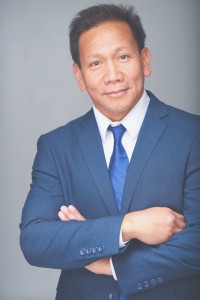

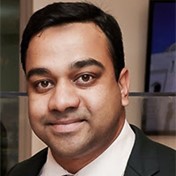
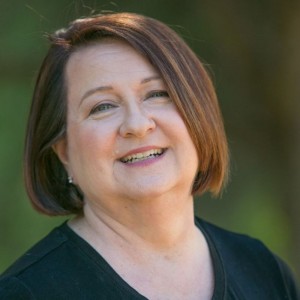
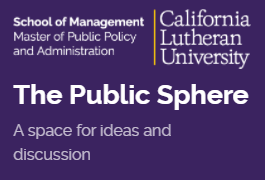

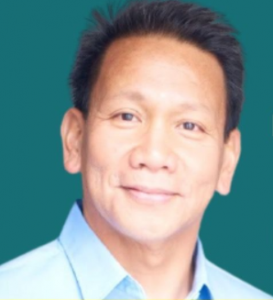

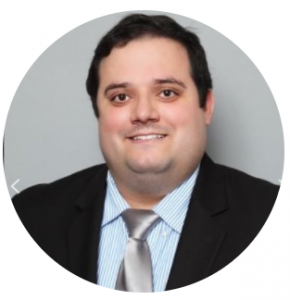
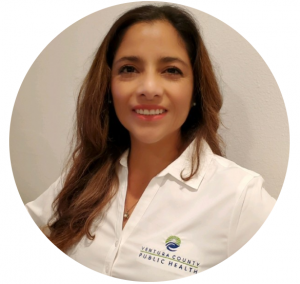
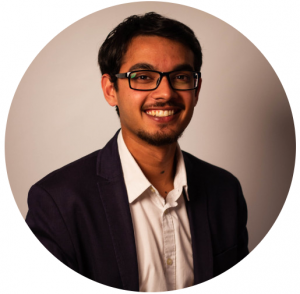

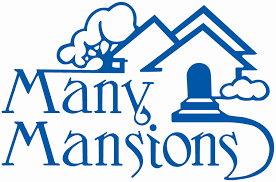
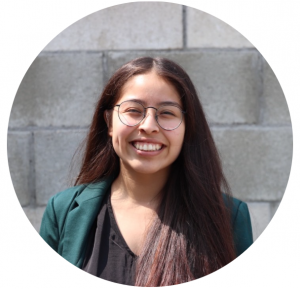
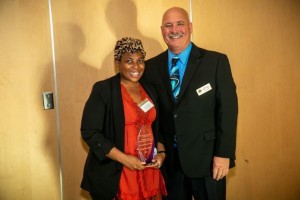

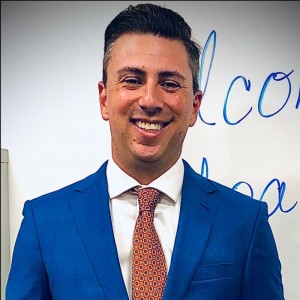
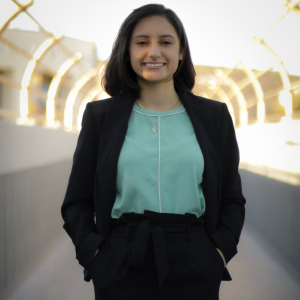


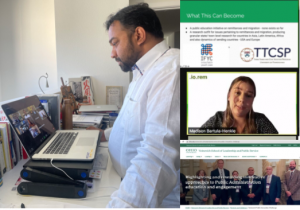
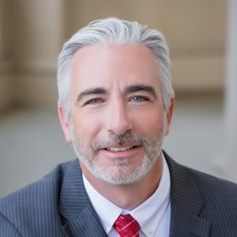
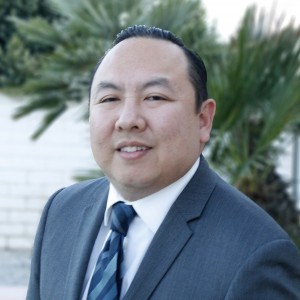
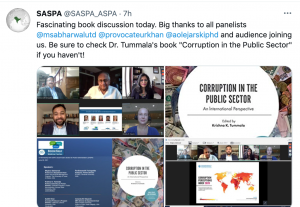
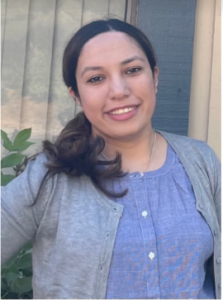
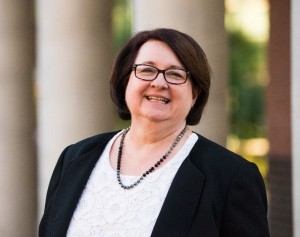







 Maya Hoholick’s thesis is a case study on the Fox Canyon Groundwater Trading Pilot, which explores the statistical determinants of excessive groundwater pumping, along with better basin plans and actions for bringing California into sustainability. She presented at the Public Administration Theory 2020 Conference on June 11th, which was supposed to be held in Malmo, Sweden, but was rescheduled for a zoom presentation. She also accepted a fellowship from George Mason University, the Don Lavoie Fellowship for Fall of 2020, which explores key ideas in political economy and utilizes these ideas in academic and policy research. She will also present at the Third Annual Western Groundwater Congress on September 15th. Her presentation, The Fox Canyon Groundwater Pilot: Case Study of a California Water, will be featured on the Hot Topics Track.
Maya Hoholick’s thesis is a case study on the Fox Canyon Groundwater Trading Pilot, which explores the statistical determinants of excessive groundwater pumping, along with better basin plans and actions for bringing California into sustainability. She presented at the Public Administration Theory 2020 Conference on June 11th, which was supposed to be held in Malmo, Sweden, but was rescheduled for a zoom presentation. She also accepted a fellowship from George Mason University, the Don Lavoie Fellowship for Fall of 2020, which explores key ideas in political economy and utilizes these ideas in academic and policy research. She will also present at the Third Annual Western Groundwater Congress on September 15th. Her presentation, The Fox Canyon Groundwater Pilot: Case Study of a California Water, will be featured on the Hot Topics Track. Greg Sefain’s Capstone project seeks to find policy solutions for restaurants in the City of Pasadena.
Greg Sefain’s Capstone project seeks to find policy solutions for restaurants in the City of Pasadena. 





